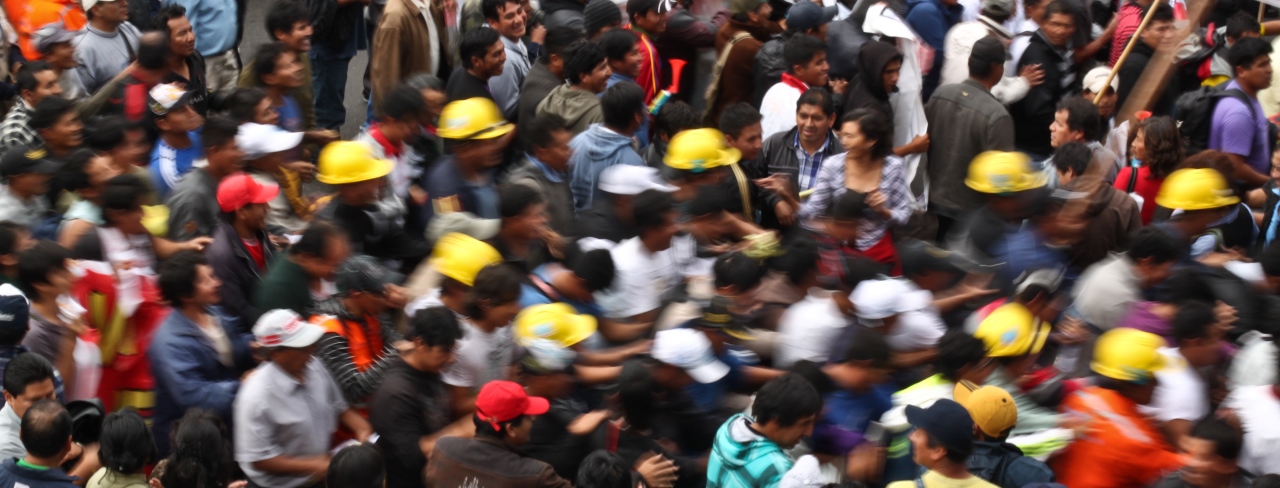In Peru, a new youth employment law, dubbed the ‘Ley Pulpín’ – denoting an innocent young person who’s easy to exploit – has caused mass protests in the capital, Lima.

The Government claims the law will boost employment, but trade unionists and thousands of 18-24 year olds disagree. What it will do is lower costs for employers, reducing social security, holiday entitlement and life insurance, and cutting annual bonuses and severance pay altogether.
Last year, growth in Peru was hit by a drop in manufacturing and a slowdown in mining, which accounts for about 15% of GDP. This may be behind the Government’s drive to reduce labour costs.
According to Javier Neves, a professor of labour law at Lima’s Pontifical Catholic University, Peru’s confederation of private industry employers, CONFIEP, had lobbied for the new law to reduce labour costs for medium-sized and big businesses.
Photo credits: Geraint Rowland / Flickr













